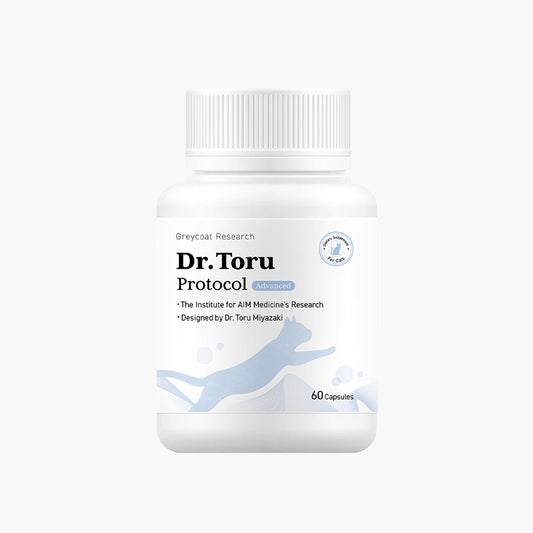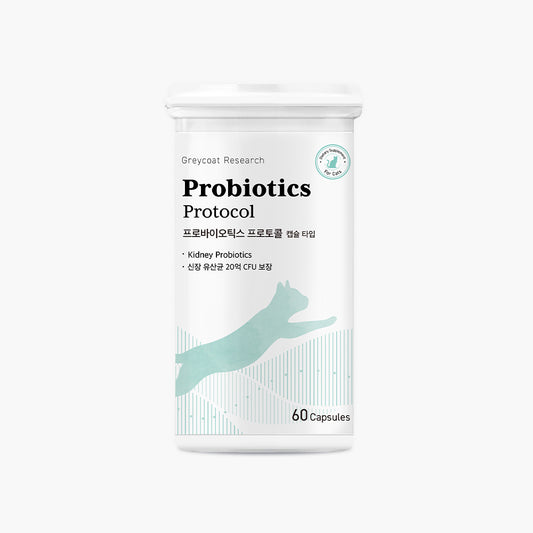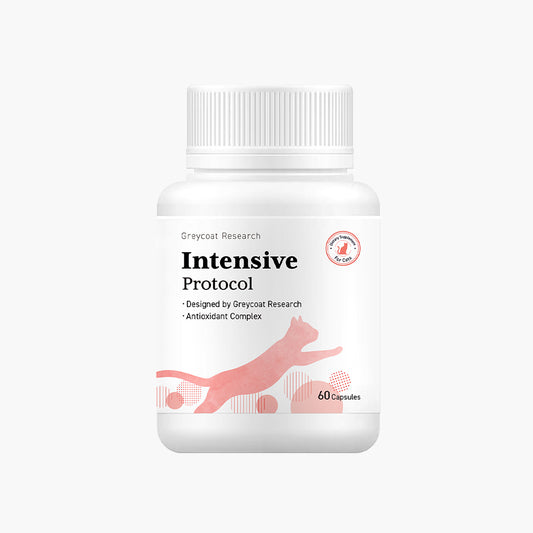 A cat with kidney disease takes her supplements.
A cat with kidney disease takes her supplements.
Kidney damage in cats is often irreversible, which is why it’s essential to use medications with care. While not all drugs are harmful, some can place a significant burden on the kidneys—especially when used long-term. The following 3 types of medication should be used with caution to protect kidney health in cats.
Greycoat Research – Experts in Feline Kidney Disease Care
✔ Over 1,000 personalized kidney disease consultations conducted
✔ Insights from Dr. Kim Jae-young, veterinarian of Minky, Korea’s oldest cat at 28 years
✔ Expert guidance from Dr. Motoo Kobayashi, with 30 years of clinical experience in feline kidney care
✔ Supplement consultations based on research by Dr. Toru Miyazaki of the Institute for AIM Medicine
1. Antibiotics
Uses in Cats:
- Treating bladder infections, pneumonia, and skin conditions
- Managing stomatitis
- Preventing post-surgical infections
- Treating dental infections and periodontitis
Risk to Kidneys:
Medications like gentamicin and amikacin are effective for treating infections, but they are excreted through the kidneys and may damage kidney cells in the process.
Low-Toxicity Antibiotics Still Require Caution:
Amoxicillin, doxycycline, and azithromycin are considered safer, but in cats with impaired kidney function, the drugs may clear more slowly from the body. Extended use can contribute to chronic kidney damage.

General the cat undergoes a blood test at a veterinary clinic.
Case Study: General's Antibiotic Treatment
General, an 18-year-old cat with stage 4 kidney disease under the care of Greycoat Research, developed symptoms of a bladder infection and was prescribed antibiotics. To minimize kidney burden, the treatment period was carefully adjusted in consultation with the attending veterinarian, and General’s condition was closely monitored throughout the process.
Important Tips:
- Ensure proper hydration to support drug excretion.
- Conduct kidney function tests if antibiotics are used long-term.
2. NSAIDs (Non-Steroidal Anti-Inflammatory Drugs)
Uses in Cats:
- Managing arthritis-related pain
- Providing pain relief after injury or surgery
- Reducing inflammation
Risk to Kidneys:
NSAIDs relieve pain but may restrict blood flow to the kidneys, potentially leading to chronic damage when used for extended periods.
Safe NSAIDs Still Require Caution:
Meloxicam and robenacoxib are commonly used for cats and considered safer than other options. However, in cats with reduced kidney function, these medications may accumulate in the body and contribute to additional kidney stress.
 LuLu the cat visit a veterinary clinic for treatment.
LuLu the cat visit a veterinary clinic for treatment.
Case Study: Lulu’s Pain Management and Alternatives
Lulu, a Scottish Fold under Greycoat Research's care, was initially treated with meloxicam for a genetic condition. However, after his creatinine and BUN levels increased, the drug was discontinued, and his inflammation is now being managed via alternative supplements and laser therapy.

A cat gets an ultrasound at a veterinary clinic.
Important Tips:
- Never give human pain relievers (like ibuprofen) to cats.
- Always check kidney values through blood and urine tests before use.
- Monitor blood pressure and kidney function during long-term use.
3. Steroids (Corticosteroids)
Uses in Cats:
- Treating allergies and itching
- Managing stomatitis and asthma
- Controlling immune-related conditions
- Reducing severe inflammation
Risk to Kidneys:
Steroids don’t directly damage the kidneys, but they can increase blood pressure, which may harm renal blood vessels. They can also raise blood sugar levels, increasing the overall burden on the kidneys.
Important Tips
- Steroids should not be stopped abruptly—the dosage needs to be reduced little by little over time.
- Monitor blood pressure and kidney values before and during treatment.
- Check for proteinuria, elevated blood pressure, and blood glucose regularly during long-term use.

A cat drinking water.
It's important to make sure a cat drinks enough water to support its kidney function. Once damaged, the kidneys cannot heal. That’s why medications like these should always be used with caution—and only under veterinary supervision.
Need Help Managing Medications and Kidney Care?
Greycoat Research provides expert consultation for cats with kidney disease.
For customized care plans and medication guidance, free 1:1 consultations are available now.




